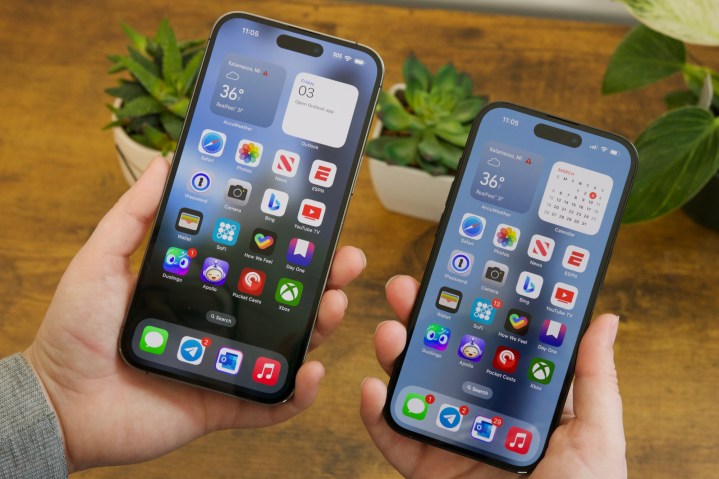
Those living or vacationing in the United Kingdom should be ready for a nationwide cell phone alert that’s going to happen today and will cause your phone to make a loud noise. The alert, scheduled for Sunday, April 23, is a simple test for the government’s emergency alert system, so there’s no reason to be alarmed. However, make sure you’re ready for it. Otherwise, it might catch you off guard.
Nationwide alarms aren’t a new thing; we’ve seen them used over the years, broadcast across TV and radio stations. But as the world has started relying on smartphones more, emergency alarms have needed to catch up with the technology of the time, hence today’s test, which will coincide with some big nationwide events including the London Marathon 2023 and Premier League soccer.
Alerts like this can be used to warn citizens about potential threats in their area, including natural disasters, terrorist attacks, or missing children. But the one schedule for today is just a test, so those who receive it shouldn’t have anything to worry about. In fact, the United Kingdom has already been testing regional alarms for quite some time, so this is just to see how the alarm will function when it’s sent to everyone in the country.
The United Kingdom’s Cabinet Office announced via a YouTube video last month that the alarm will be going off and that residents shouldn’t panic once it does. Expect the alarm to be going live at 3 p.m. BST with a message reading, “This is a test of Emergency Alerts, a new British government service that will warn you if there’s a life-threatening emergency nearby.”
Take note that even if your phone is set to silent or vibrate, you’ll still get the notification that will sound the alarm. To silence it, simply select Dismiss or OK or whatever text box appears when the alarm goes off.
If you don’t want to get the alarm, you can temporarily disable emergency alerts in your phone’s settings. Simply open the Settings app and search for Emergency alerts. You should find a toggle that’s defaulted to on, so if you don’t want to be disturbed, you can toggle it off. You can also turn your phone to airplane mode to avoid the alert.
The list of phones receiving the alert includes those that are running on Android 11 or later or iOS 14.5 or later. This means that all new devices purchased in the last few years, regardless of their manufacturer, should sound off when the government sets off the alarm. Tablets and other devices that have cellular connections should also be alerted when the time comes.
As mentioned above, there’s nothing to be worried about with this particular alarm since it’s just a test. It might not be a bad idea to set a reminder alarm for today at 2 p.m. BST, however, so that you know when to anticipate it and not to panic. Those attending the theater and live events are encouraged to turn off their device before they arrive to mimize the amount of disruption.
Editors' Recommendations
- AirTags range: here’s how far the tracker can reach
- An Apple insider just revealed how iOS 18’s AI features will work
- iPhone 16: news, rumored price, release date, and more
- iPhone SE 4: news, rumored price, release date, and more
- 3 reasons why I’ll actually use Anker’s new iPhone power bank



